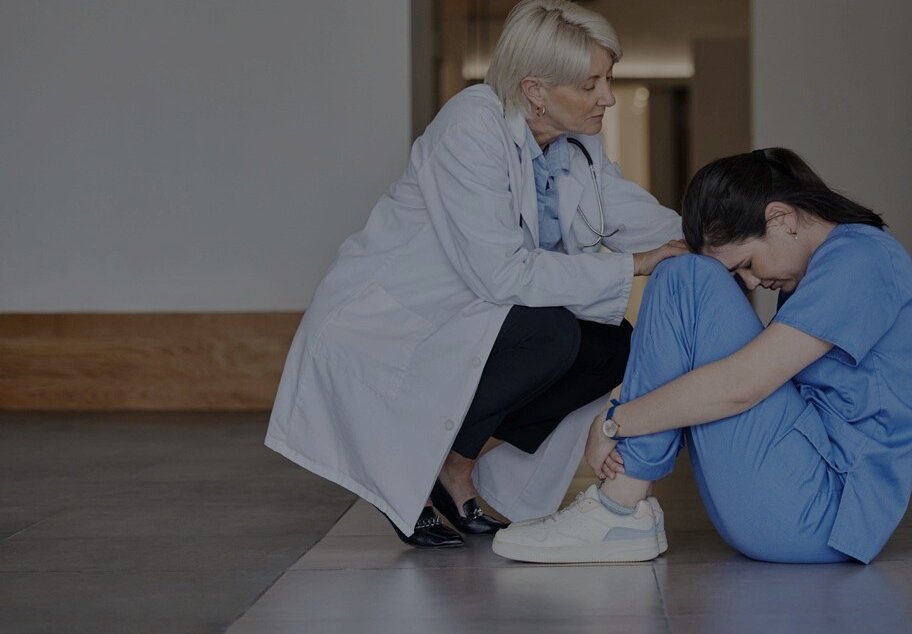
Making a difference: psychosocial support for nursing staff
Nursing staff contribute enormously to our society every day. They care for us when we are at our most vulnerable and are in need of help. Unfortunately, nurses are also confronted with many traumatic experiences. This is particularly stressful during training or when starting out in the profession, but even experienced nurses can reach their personal limits.
It is important that employers offer support so that these traumatic experiences do not become entrenched and turn into a personal burden. As an employer, you should therefore be sure to address the issue of psychosocial support. In this article, you will learn how to recognise whether your employees or colleagues are under extreme psychological stress, what you can do about it and why psychosocial support is so important.
What are the signs of psychological stress?
Not everyone is able to admit to themselves that they need help. This is why it is important to recognise the early signs in colleagues and employees.
Symptoms of mental stress include difficulty concentrating, irritability, anxiety, nervousness, mood swings, outbursts of anger, frequent illness, tiredness and exhaustion. Of course, these symptoms can also have other reasons. If you notice such symptoms in an employee or colleague and perhaps even know that the person has recently experienced something traumatic, address them. Be sensitive, listen and be open. Work together on finding solutions.
What can employers do?
Open communication
Maintain open communication. Employees should be able to approach you openly with problems and challenges. However, this is only possible if you make them feel secure. Open communication lays the foundation for preventing stress from manifesting in the first place.
Exchange within the team
You can also encourage regular exchanges within the team. Offer weekly rounds of dialogue – be it inside or outside the work environment. This exchange between colleagues helps them feel understood, as they all face similar challenges. Perhaps other team members can already pass on important tips on how to deal with stressful situations.
Train peers
Train employees to become so-called “peers”. They are the first point of contact in your institution for colleagues in stressful situations. But why train your own employees to become peers? Some people find it easier to open up to people they already know, in this case their colleagues. This contact on an equal basis can lower the barrier to communication. However, others prefer to seek help anonymously. In such cases, the PSU helpline can provide assistance. Here, nursing staff can receive free and anonymous help. Make sure to raise awareness of this service.
About the author
Katharina Weckend, Content & SEO Manager
Katharina joined lingoking as a Content and SEO Manager in 2024. She handles our content and SEO strategy and writes texts for our website, guide and other lingoking media. “I am happy I get to pass on knowledge in our lingoking guide and help break down language barriers.”




